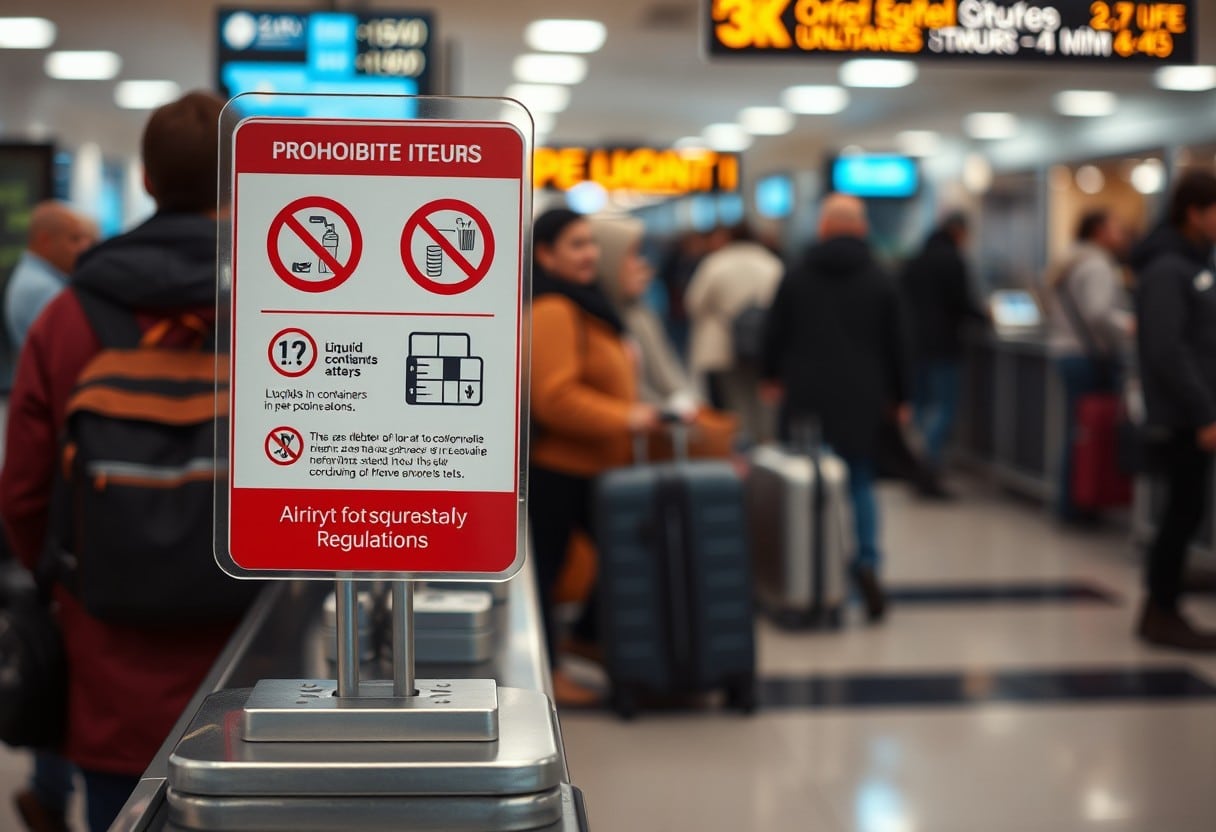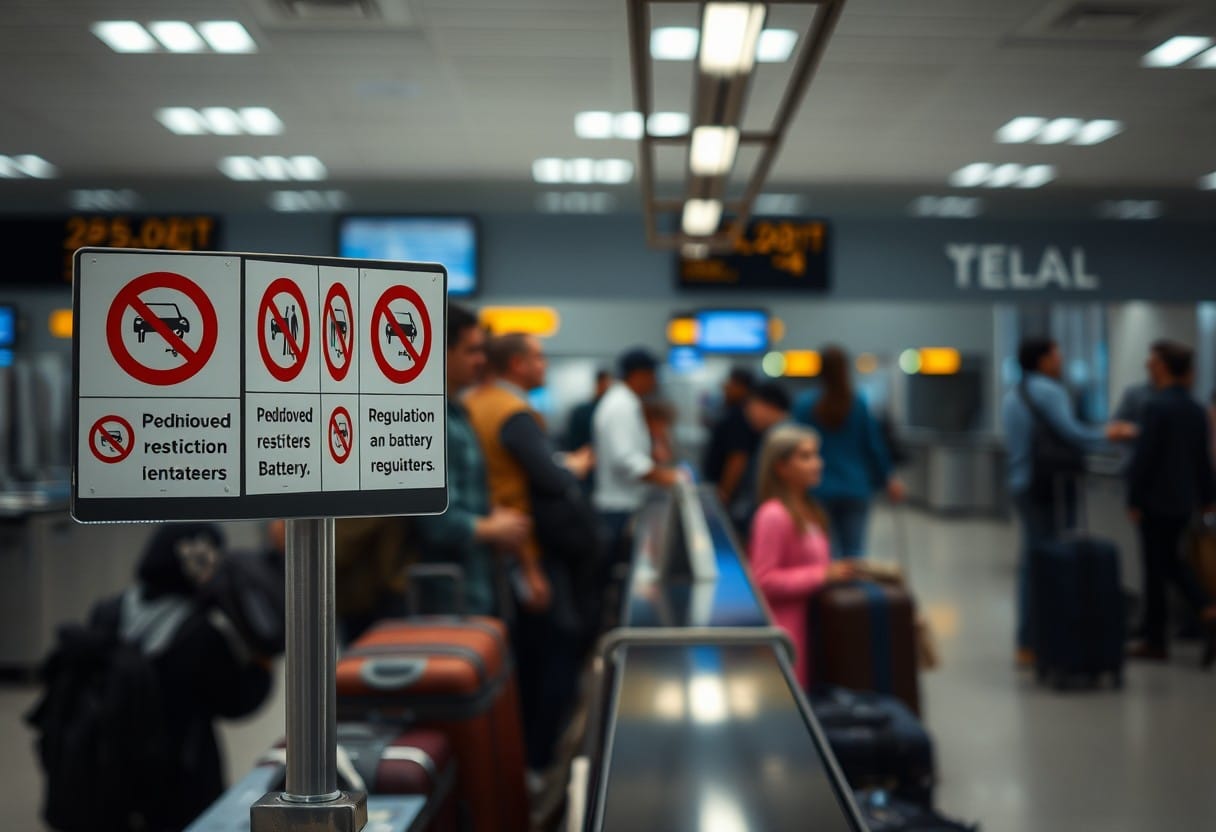When preparing for a trip abroad, it's important to understand baggage restrictions. In this article, we'll provide you with detailed information on what must be checked, liquid restrictions, and battery limitations. With this information, you can avoid unnecessary hassles at security and ensure that your luggage complies with airline and international regulations. Whether it's liquids, electronics, or food, here's how you can get your baggage restrictions figured out once and for all, so you can get on the plane with ease.
Baggage Consignment Requirements
When traveling abroad, it is extremely important that you understand the rules for checking in your luggage. You need to make sure that all items meet the airline's requirements to avoid unnecessary hassle or expense. Different airlines have different restrictions on what can be checked in, so it is advisable to check the regulations carefully before you leave, especially the special requirements for liquids, dangerous goods and individual items.
Prohibited Items
Certain items are prohibited from being checked in and carried, and you must pay special attention to them. These prohibited items include knives of all kinds, weapons, explosives, flammable substances and other dangerous goods. Carrying these items in either carry-on or checked baggage is subject to strict scrutiny and may result in compensation or legal liability if detected.
Large Sports and Baby Products
If you plan to bring large sporting goods such as golf clubs or skis, these must be checked in and may incur an additional check-in fee. As for baby items, most airlines allow one stroller or sleeping basket to travel with you, which does not count towards your checked baggage allowance, ensuring your baby travels comfortably.
When carrying large sporting goods, the aim is to ensure the safety of your luggage and the comfort of other passengers. Golf clubs and skis will need to be checked in, so be sure to check if the airline has any special regulations or additional fees for these items. For baby items, most airlines allow an extra stroller to be checked in, so check with the airline's policy beforehand to make sure your baby and its essentials are carried smoothly during your trip.
Liquid Carrying Regulations
When traveling by air, it is important that you are aware of the rules for carrying liquids. Liquids, aerosols and gels must be packed in containers of less than 100 ml and placed in clear zippered bags of up to 1 liter, with a limit of one bag per person. If you are unsure about whether liquids are allowed in your checked baggage, you can refer toLiquid Carrying Requirements on International Flights: What You Need to Know.
Liquid Container Capacity Limit
The containers of liquids you carry must comply with a volume limit of 100 ml per container, and all liquids must be placed in a sealable, transparent zip-lock bag with a maximum capacity of 1 liter. This requirement is designed to protect flight safety and avoid disrupting security procedures.
Carrying Food and Beverages
Carrying food and beverages on board varies by airline. Most airlines allow you to bring in food, but some low-cost airlines have rules against eating out. If you choose to bring fruit or meat, it is recommended that you consume it as soon as possible during the flight to avoid being detained at immigration.

Battery and 3C Product Restrictions
When traveling by air, your 3C products (e.g., laptops, cell phones, tablets, etc.) and battery limitations require special attention. According to airline regulations, lithium batteries are required to be carried on board and follow specific capacity specifications. For more information on what you can bring, please refer toLiquids in Checked Baggage: The Top 3 Limits You Need to Know.
Lithium Battery Shipping and Carrying Requirements
Lithium batteries are shipped and carried under strict regulations. Removable lithium batteries must be removed and carried with a capacity of less than 160 watt-hours. Unremovable lithium batteries must be turned off at all times to comply with shipping requirements.
Mobile Power & Electronics
There are additional restrictions on carrying mobile power. You may carry a maximum of 15 portable electronic devices or 20 spare batteries if their capacity is under 100 watt-hours (Wh). Above 100 watt-hours but not exceeding 160 watt-hours, you may only carry a maximum of 2, subject to airline approval. Batteries with a capacity exceeding 160 watt-hours are prohibited.

Restrictions on Tobacco, Alcohol and Related Products
When preparing to leave the country, it is important to know the restrictions on alcohol and tobacco. In Taiwan, you are allowed to bring a certain amount of alcohol and tobacco into the country, but it is important to be aware of what is allowed for each type of product to avoid fines or discards. Especially for alcoholic beverages and cigarettes, knowing the local regulations can make your trip much smoother.
Alcoholic Beverage Carrying Regulations
For alcoholic beverages, if the strength is between 24% and 70%, you are required to consign a total of no more than 5 liters per person. If the alcoholic strength does not exceed 24%, no special restrictions are required, but you must still comply with the entry restrictions, including the duty-free 1 liter of alcohol.
Tobacco and e-cigarette regulations
When carrying cigarettes, you are entitled to 1 duty-free cigarette or 25 cigars, while a limited total of 5 cigarettes or other types of cigarettes should be declared. E-cigarettes are not allowed to be checked in or used in-flight, so it's important to be aware of the rules before you fly.
As a further note, you must follow different rules when carrying cigarettes and e-cigarettes. Electronic cigarettes and their accessories should be placed in your carry-on baggage and should never be checked in. In particular, e-cigarette oils are not allowed to be brought into Taiwan according to the regulations of the Ministry of Health and Welfare. Therefore, please check the relevant entry regulations of your destination country before departure to avoid unnecessary trouble.
Entry Requirements for Food and Agricultural Products
When entering international airports, you need to be aware of the regulations to avoid carrying prohibited items. Foodstuffs that are normally allowed include commercially packaged, heat-sterilized canned food and meat-free biscuits and cakes, while fresh fruit and meat products are prohibited. For more information on hand baggage regulations, please refer toNew UK rules in June 2024: Liquid restrictions on carry-on baggage relaxed for flights.
Permitted and Prohibited Foods
You are allowed to bring some non-perishable commercially packaged foods such as cookies or canned foods, but fresh fruits and meat are prohibited. To avoid being detained, always check that the food you are bringing in meets local immigration requirements.
Plant and Animal Product Restrictions
When entering many countries, you must be aware of the restrictions on bringing plant and animal products. For example, you cannot bring live animals, meat or egg products, which usually require declaration and may be subject to quarantine.
According to the relevant regulations, you should know the special requirements of each country before you want to bring plant or animal products into the country, for example, Taiwan absolutely prohibits the entry of fresh fruits and most meat products. It is recommended that you check the requirements and restrictions in advance to ensure that you do not bring prohibited items into the country to avoid losses.
Dangerous Goods and Safety Inspection Regulations
When traveling by air, you must pay special attention to dangerous items in your baggage, which not only affect flight safety, but are also illegal. Explosives, flammables, corrosive substances and toxic substances are prohibited in both carry-on and checked baggage. Make sure that your baggage does not contain these items so that you can pass through security and travel safely.
List of Prohibited Items
Prohibited items include pyrotechnics, explosives, lighter fuel, cyanide, etc. These items can threaten flight safety due to their properties. You should check your baggage carefully to avoid unnecessary trouble or delay at the security checkpoint.
Handling of special items
For some special items, such as medical supplies or batteries, you need to follow specific regulations. Lithium batteries are strictly limited in hand luggage, while e-cigarettes must be carried in carry-on luggage. Make sure you know the rules before you travel to avoid any confusion.
For special items, such as medical supplies and batteries, you need to handle them separately. For example, lithium batteries need to be stored carefully and may not be carried if their capacity exceeds certain limits. Also, for medical supplies, you must have a prescription on hand. And even if your medical needs are temporary, you should always check with the airline about its policies to avoid problems at the security checkpoint.
Understanding Baggage Restrictions Once and for All: Checked Prohibited Items, Liquid and Battery Regulations
When preparing for your trip, you must be fully aware of baggage restrictions, including check-in prohibited items, liquids and batteries. Liquids should be packed in containers of less than 100ml and placed in transparent bags, while the capacity of mobile power should be noted to ensure that it meets the requirements of airlines. To ensure smooth customs clearance, it is recommended that you check the relevant policies in advance to avoid unnecessary hassles, and be ready to comply with the entry regulations of each country to ensure that you have a pleasant and worry-free trip.